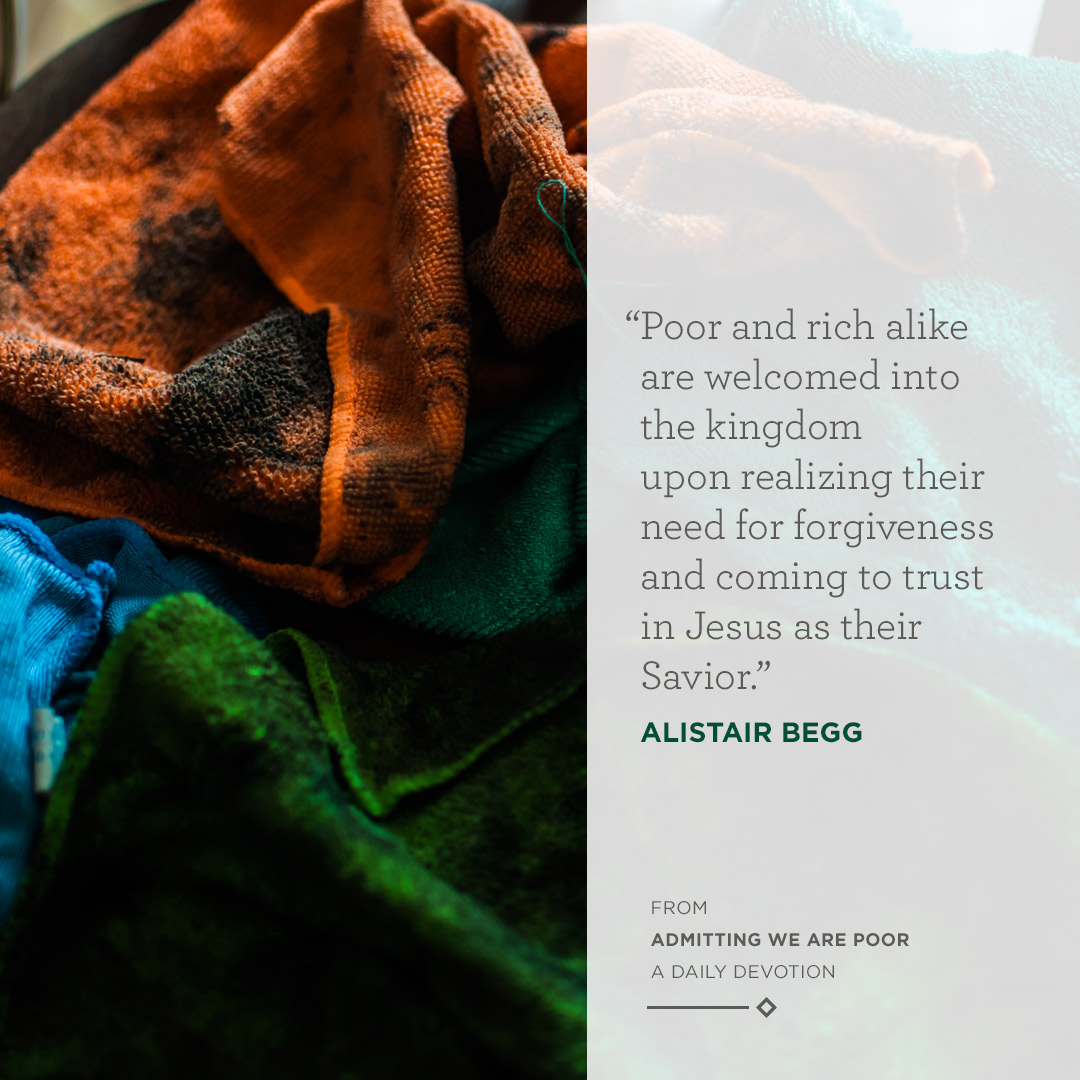Transformed: A 9-Day Plan on Jesus’ Sermon on the PlainНамуна

ADMITTING WE ARE POOR
“He lifted up his eyes on his disciples, and said: ‘Blessed are you who are poor, for yours is the kingdom of God.’” LUKE 6:20 (ESV)
Jesus exalts what the world despises and rejects what it admires.
That is the great challenge of the Beatitudes, and nowhere more so than in Jesus’ teaching here on wealth. We live in a world that cries for us to make much of ourselves, particularly in the realm of finances and material wealth. Comfort is king in our consumer culture, and that culture is the water in which we all swim.
So it confronts us that Jesus begins His teaching in this sermon by saying, “Blessed are you who are poor.” What is He doing? Is He suggesting that material poverty is somehow the key to salvation? Absolutely not! Rather, He is explaining that those who truly become aware of their spiritual poverty will enter the kingdom of God.
There are, of course, those who claim Jesus was teaching that if you’re poor, you ought to be really glad because you’re automatically a part of the kingdom of heaven. But that kind of poverty is not the key to entry into God’s kingdom, nor are riches themselves the main reason for someone’s exclusion. Indeed, poor and rich alike are welcomed into the kingdom upon realizing their need for forgiveness and coming to trust in Jesus as their Savior. If this were not the case, then a woman named Lydia, who lived in Philippi as a prosperous merchant, would never have had her eyes and heart opened to the truth of the gospel (Acts 16:11-15). No, it is an awareness of our spiritual poverty apart from Christ that is needed.
It is important to notice, however, that financial poverty may well be a means of spiritual blessing. Such poverty often leads men and women to discover their utter dependence upon God not only for physical and material needs but also for spiritual blessings. For this reason, poverty tends to yield a far greater response to the gospel than affluence. Enjoying plenty materially can so easily blind us to our deepest need: to be brought into the kingdom of God. Wealth is often the ground in which pride blooms, so that our hearts forget that for the rich just as much as for the poor “like a flower of the grass” we “will pass away” (James 1:10).
As John Calvin explained, “He only who is reduced to nothing in himself, and relies on the mercy of God, is poor in spirit.”[1] Poverty brings its trials; but have you ever realized that wealth does too, in its temptations to pride, self-reliance, and spiritual complacency?
So are we willing to admit our spiritual poverty? Or are we too self-assured and satisfied with our earthly riches? Here is one way to know the true answer to those questions: can your heart echo the prayer of Agur in the Proverbs: “Give me neither poverty nor riches” (Proverbs 30:8)?
- How is God calling me to think differently?
- How is God reordering my heart’s affections—what I love?
- What is God calling me to do as I go about my day today?
[1] Commentary on a Harmony of the Evangelists, Matthew, Mark, and Luke, trans. William Pringle (The Calvin Translation Society, 1845), Vol. 1, p 261 (emphasis added).

Scripture
About this Plan

Over the centuries, millions have been stirred by Christ’s lessons on the Law of Love, the Golden Rule, forgiving one’s enemies, and bearing good fruit. But are these famous words in Luke 6 really just a collection of inspiring moral teaching? Or do they offer us something even greater? In this 9-day plan, we learn how they can lead to a transformation that can only be accomplished by Jesus Himself.
More
Нақшаҳои марбут ба мавзӯъ

You Can!

Preparing for Easter: Jesus Boldly Faces Death-1

King of Kings: 5-Day Easter & Good Friday Study

The Strength of the Spirt

Embracing Your Identity as a Daughter of the King Through Infertility

Crushing Chaos

Two-Year Chronological Bible Reading Plan (First Year-May)

The Adversity Gospel: Trading Prosperity Promises and Deep Disappointment for Unsinkable Hope

EDEN: 15 - Day Devotional by The Belonging Co
